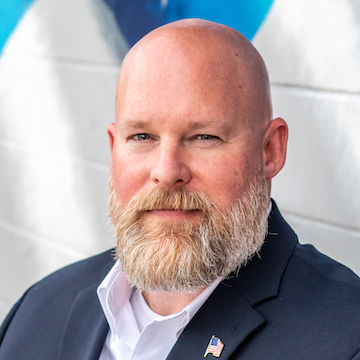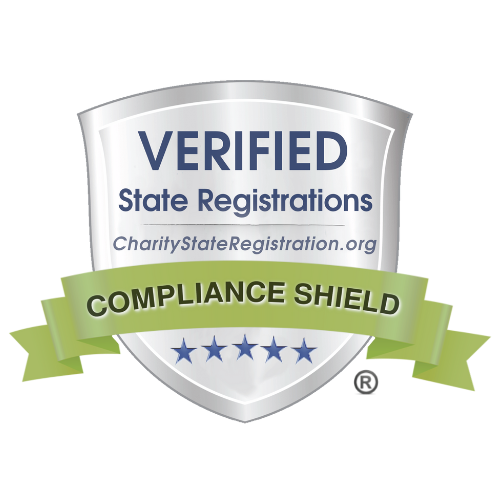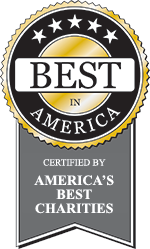Richard Possert, Jr.

Branch: US Navy
Years Served: 1994-2017
Rank: E-7/Chief Petty Officer
Military Occupation: Fire Controlman/Tomahawk (Missile) Weapon System Supervisor/Anti-Terrorism, Force Protection Supervisor
Twitter Handle: @richpossertjr
Tell us a little about you outside of the military:
- I grew up in the “Rust-Belt” area of our Country in Youngstown, Ohio, and joined the Navy in 1994 right after graduating High School.
- I’m married to my very supportive and loving wife Kristy, and we have two girls, Baylee (18) and Reyanne (10).
- After retiring from the Navy, I started a real estate business; my wife and I continue to serve our community as Realtors in Northeast Florida and are proud to be a successful Veteran-owned business.
- While in the Navy, I lost a spouse, Rachel, to cancer. Alongside my church, the folks that kept me moving forward and “in the game” were the local Veteran Service Organizations. Because of the deep impact their support made on me, I felt a calling to serve in the Veteran Service Community.
- I joined the Veterans of Foreign Wars while still serving on active-duty at the Post in my hometown of Hubbard, Ohio (Post 3767), and following my retirement from the Navy, I transferred to a Post here in Jacksonville Beach (Post 3270).
- I also joined Disabled American Veterans FL Chapter 1 (Jacksonville, FL) and the Iraq & Afghanistan Veterans of America.
- I’ve been blessed to serve in leadership at the Post level and this year I will have the opportunity to lead our District (FL-6) in Northeast Florida.
- Through my service in multiple Veteran Service Organizations, I volunteered as a delegate to our local Veterans Council in Duval County, FL, where I now serve as Chairman.
- I enjoy golfing and spending time with family, and I also enjoy staying involved with our local active-duty servicemembers at our local bases in Northeast Florida.
Why are you joining the IAVA Cavalry?
- I’m passionate about advocating for my brothers and sisters who have served our Country. I feel strongly that the laws that have been enacted to support, protect, and provide services to our fellow Veterans are due to our Veteran Service Community interacting with our elected leaders at ALL levels of government, from our Cities and Counties to our States and Federal Levels.
- I feel that IAVA shares a common set of core values with me; leading in service is what I connect with the most – we are stronger together as a team, not as individuals.
- Our Country and our world need servant-leaders and statesmen and women to lead us into the future. We need leaders who put people ahead of politics; we need folks who are mission-first and not self-serving to set the example moving forward –IAVA is at the “head of the spear” for Veteran Advocacy and I’m proud to work alongside my brothers and sisters to make a difference and help win the battles on their behalf.
How did your military experience shape you to be the person you are today?
- I joined the Navy because I felt a calling to serve. When I joined in 1994, there wasn’t much going on geopolitically worldwide; the Cold War had just ended and most of our global military action was based upon regional or hyper-local interactions such as Operation Gothic Serpent in Somalia.
- Serving in the Navy gave me discipline; it showed me the importance of service above self. My first two deployments were a mixed bag of experiences – we were on station in the Adriatic Sea during both the Bosnian War and the Kosovo Conflict; while supporting military forces during those operations, we spent a lot of time visiting ports in the Mediterranean.
- As we all experienced the events on September 11th, 2001, together, our service and our careers changed. After 9/11, I deployed eight more times; our deployments had an intensity not matched previously. Extended deployments, enhanced threats, and the uncertainty of our operational tempo brought an entirely new experience to serving our country.
- I was blessed to have served with some exceptional leaders; from the Senior enlisted ranks to Commanding Officers and Admirals, I’ve been blessed to have been given examples of the best (and worst) ways to serve and lead – I stay in contact with many of the leaders who made a positive impact on me, and because of them and all of my brothers and sisters I was blessed to serve alongside, I’m motivated every day to try and make a positive impact on as many people as I can.
Which one of IAVA’s policy priorities for you believe is the most pressing? Why?
- The fight to fully recognize and improve services for women Veterans is, in my opinion, the most pressing policy priority.
- When I joined the Navy in 1994, my graduating boot camp class was the first male/female integrated class in Great Lakes, IL history. I served on both male-only ships and fully integrated ships. Since beginning my journey in service in the Veteran Service Community, I have heard far too many horror stories of what my sisters-in-arms have been through, both during their service to our Country and in their lives since departing the service.
- Women make up a quarter of our services; that number will continue to grow. Women need more specialized medical care; far too many of our sisters have been victims of sexual misconduct while serving; this has created mistrust and a trauma-based avoidance of care for their wounds – most of which are invisible to others. We are making progress, but we aren’t there yet.
- As a father to two girls, if my daughters wanted to serve in our military, I would encourage them, but at the same time, I would be scared as hell for them. This shouldn’t be the case. We need more women in leadership roles, in the military, in the Veteran Service Community, and in our Government.
Which one of IAVA’s policy priorities do you have the strongest personal connection to? Why?
- This is a toss-up for me. The modernization of the VA and the VA studying alternative therapies such as cannabis, psilocybin, LSD, service animals, agri-therapy, etc. both have direct impacts on me and my well-being.
- As someone who relies on the VA for my primary medical care, I feel there is a vital need to not only continue to modernize but to create a culture of being the trendsetters for all medical care. Veterans have some of the most complex and unique healthcare challenges; we’ve been exposed to things most of our population has never been exposed to, and the healthcare challenges we face are unlike any other segment of our population – modernizing our VA healthcare system is a matter of national security – if potential recruits don’t have faith in their post-service health care, it directly affects their urge to serve.
- I’m someone who suffers from service-connected mental health and chronic pain issues who has access to medical cannabis treatment thanks to our laws in the State of Florida. I’ve been prescribed opiates and benzodiazepines, SSRIs, and other pharmaceuticals over the last 15 years to help treat my mental and physical health issues. Many of those treatments were ineffective or made my condition worse! I succinctly remember the first time I used cannabis to treat my PTSD and chronic pain – it was a very emotional experience of relief that brought me to tears.
- There are way too many false narratives and ultra-conservative views that belittle those who use therapies and marginalize the effectiveness of alternative treatments such as cannabis to treat a variety of mental and pain-related health issues. I’m proud to be an example of someone who can responsibly use cannabis to treat PTSD, anxiety, and pain relief, yet continue to effectively perform my duties as a successful small business owner and leader in the Veteran Service Community without the negative impacts of the use so often mistakenly identified as being a “gateway drug” or having adverse effects on my cognitive ability to function.
- I also rely on other “non-traditional” treatments such as acupuncture, massage therapy, and meditation to treat my mental and physical health. We must provide every opportunity for treatment for our Veterans; allowing for the study of these therapies and their ability to treat the mental and physical wounds we’ve suffered should be a no-brainer, and one of my goals as an advocate is to do everything I can to bring awareness of the possibility of success of these treatments to our lawmakers and move them to pass laws allowing these treatments to move forward.





